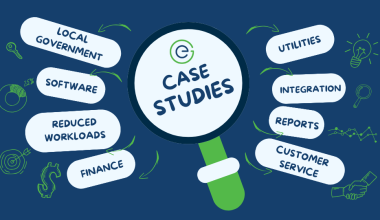Payroll is an essential function that every business must manage, and local governments are no exception. The ultimate argument when it comes to payroll has two faces: outsource operations or keep it in-house. While each side of the payroll argument coin comes with its own flaws and dents, we believe the optimal choice is to keep operations in-house.
Based off customer feedback and longstanding industry experience, we have put together 5 of the top benefits of bringing payroll in-house:
1. Better Flexibility
Want more control and time saving options with your payroll process? Having payroll in-house bolsters your flexibility in a variety of ways. One being that all details are within your reach. Any changes that are necessary for payroll processing can be handled by you directly without an outsourced entity needing to get involved.
Everything can also be completed at your own pace. Outsourcing payroll with other companies usually comes with being tied to their deadlines. They maintain several functions for multiple companies that includes when their initial data is due, when they must approve the final check, and having everything ready for payments to be processed on time. Each of these factors can interfere with your organization’s time restraints. When processing payroll internally, you are in control of your own deadlines which allows for much more flexibility and less stress.
2. Increased Security
Having payroll on site reduces the chance your employee and payroll data is compromised. You are in control of how payroll data is handled and there are no alternative data trails from outsourcing the information. The fewer system and communication lines your payroll data is transferred through will ultimately result in lower security risks. With on-premise payroll software, department level security can also be setup so users are able to see only what they need without compromising any other data.
3. Lower Costs
While this is a benefit often touted by outsourcing companies, bringing payroll in-house can also help your organization save money depending on its structure. While you will need to allocate resources to train and pay an employee to manage payroll, it can still be more cost effective than outsourcing. When outsourcing payroll operations, they often lump in expensive start-up costs and reoccurring fees that can cost more in the long run.
4. Integration of Data
Having payroll data be integrative across an organization’s departments and other software that is used in-house can be incredibly valuable. One of the key benefits of data being fully integrated with payroll comes in the form of an audit trail. Audit trails can increase visibility on payroll hours and any adjustments that were made. Thanks to the integrative data, the trail can then also be tied into financial reports.
Another notable example of integrative data coming into play is if an employee uses their cell phone to clock in with an in-house payroll system. If you currently utilize this option or choose to implement it in the future, data can be funneled directly to department heads so they can easily keep up to date on their workforce. Overall, having everything under one roof eases getting data into the system and bolsters the efficiency of auditing.
5. Improved Efficiency and Accuracy
This benefit ties directly in with the aforementioned advantage that is integrative data. Having payroll on site with integrative features can result in fewer duplicate entries, the ability to automatically report on information, and an overall improvement of data accuracy across the organization. Employees and organization leaders alike will rave over these features.
For further insight on in-house payroll and software solutions feel free to contact us at info@edmundsgovtech.com or click here to browse our offerings.



